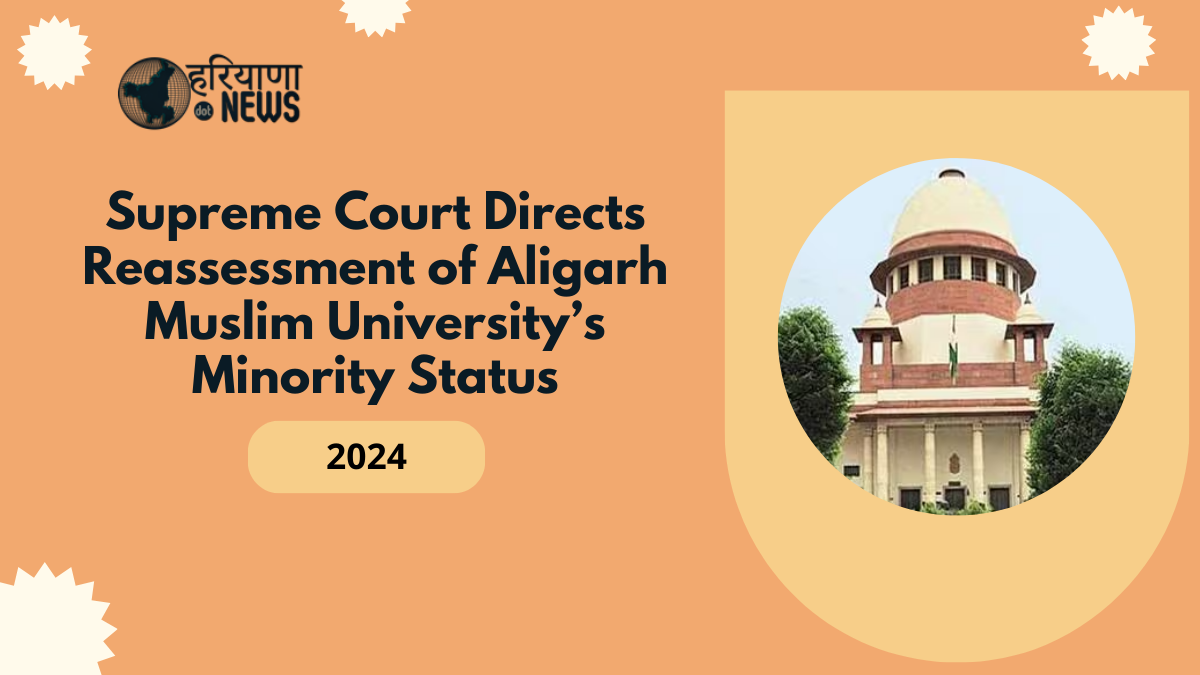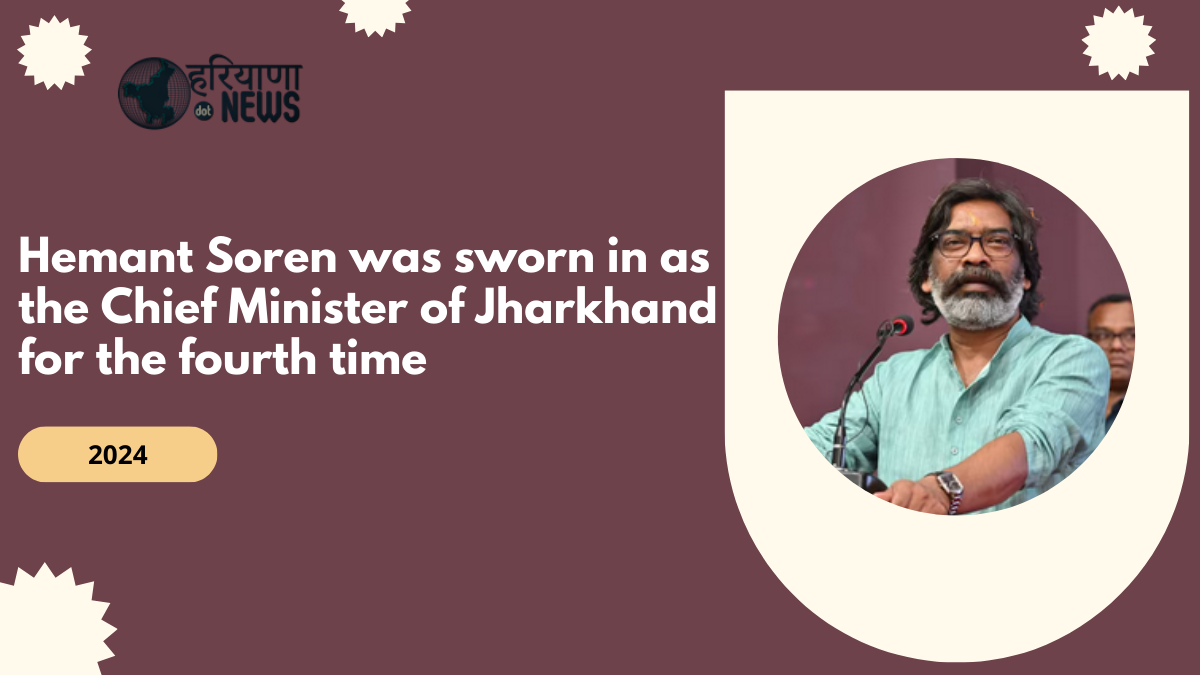The Supreme Court has directed a new evaluation of Aligarh Muslim University’s (AMU) minority status, a move that could exempt the institution from reserving seats for Scheduled Castes, Scheduled Tribes, Other Backward Classes (OBC), and Economically Weaker Sections (EWS) if recognized as a minority institution. The decision came with a narrow 4-3 majority, effectively overturning a 1967 judgment in the Azeez Basha case, which denied AMU its minority status. The re-evaluation will adhere to principles set in the latest judgment.
Supreme Court Majority Overturns 1967 Azeez Basha Case
Chief Justice of India Dhananjaya Y. Chandrachud, alongside Justices Sanjiv Khanna, JB Pardiwala, and Manoj Misra, formed the majority opinion. This majority ruling overturned the Azeez Basha decision, which previously restricted AMU from claiming minority status. It stipulated that the matter be revisited under the standards established in the present ruling, with case files referred to the Chief Justice for setting up a new bench to assess both the issue and the validity of a 2006 Allahabad High Court judgment.
Principles for Assessing Minority Status of Educational Institutions
The Court clarified legal principles for identifying minority institutions but refrained from making a direct factual ruling on AMU’s minority status. Chief Justice Chandrachud, representing the majority opinion, emphasized that a minority institution should be both created and managed by a minority group, with institutions founded before the Indian Constitution’s enactment also protected under Article 30(1). The judgment stressed that a minority status cannot be solely attributed to an institution simply because it was established by legislation; additional factors concerning the institution’s origin and purpose are also relevant.
Evaluating AMU’s Claim of Minority Character
According to the majority opinion, it is not essential for the institution’s administration to be fully controlled by the minority community. Instead, the deciding factor is whether the institution embodies a minority identity and serves minority interests. However, three dissenting justices—Surya Kant, Dipankar Datta, and Satish Chandra Sharma—contended that a two-judge bench had erred in 1981 by referring the issue to a larger seven-judge bench without first consulting a three-judge panel.
Petitioners argue for the Restoration of AMU’s Minority Status
Senior lawyers representing AMU, including Rajeev Dhavan, Kapil Sibal, Salman Khurshid, and MR Shamshad, argued that AMU has a historic minority identity. They highlighted that AMU’s origins date back to 1920, when it was founded as the Muhammadan Anglo-Oriental College by Muslims to uplift the educational standards of the community. They insisted that AMU’s minority character should not be affected by the absence of Muslim-majority control over its administration and urged a reversal of the 1967 Azeez Basha decision, which claimed AMU was neither established nor governed by a Muslim minority group.
Parliament’s 1981 Amendments and Allahabad High Court Ruling
In an attempt to affirm AMU’s minority status, Parliament amended the AMU Act in 1981 to redefine the university as an institution founded by Muslims. However, the Allahabad High Court invalidated these changes in 2006, leading AMU and the then-United Progressive Alliance (UPA) government to challenge the verdict in the Supreme Court. In a shift, the National Democratic Alliance (NDA) government later withdrew support for AMU’s minority status, asserting that the Azeez Basha judgment was valid and that the 1981 amendments should not be upheld.
Union Government’s Position on AMU’s National Importance and Secular Nature
The Union government, represented by Attorney General R. Venkataramani and Solicitor General Tushar Mehta, argued that AMU’s designation as an institution of national importance underscores its responsibility to maintain a secular ethos and prioritize national interests over minority status. Mehta’s written submissions emphasized that AMU’s national character mandates diversity and does not align with minority status claims.
 Mumbai Police Detain Woman for Threatening Call on Prime Minister Modi’s Life
Mumbai Police Detain Woman for Threatening Call on Prime Minister Modi’s Life
 Hemant Soren was sworn in as the Chief Minister of Jharkhand for the fourth time, took oath as Jharkhand’s 14th chief minister
Hemant Soren was sworn in as the Chief Minister of Jharkhand for the fourth time, took oath as Jharkhand’s 14th chief minister
 India’s Strategic Breakthrough: Advancing SLBM Capabilities with INS Arighaat
India’s Strategic Breakthrough: Advancing SLBM Capabilities with INS Arighaat
 Chinmoy Das Arrest: High Court Petition Seeks Ban on ISKCON Amid Rising Violence Against Hindus in Bangladesh
Chinmoy Das Arrest: High Court Petition Seeks Ban on ISKCON Amid Rising Violence Against Hindus in Bangladesh
 Bangladesh Police Use Tear Gas and Batons Against Hindu Protesters After Chinmoy Das’ Arrest
Bangladesh Police Use Tear Gas and Batons Against Hindu Protesters After Chinmoy Das’ Arrest





According to the government, educational institutions deemed nationally significant under Entry 63 of the Union List are expected to serve a broad demographic and not restrict representation from marginalized communities. This stance, it argued, aligns with constitutional values and the reservation policies intended to benefit marginalized groups.
Rationale Behind the Government’s Reversal on AMU’s Minority Status
In 2016, the government reversed its stance from the previous administration, asserting that maintaining AMU’s minority status was against public interest and inconsistent with constitutional principles. It argued that advocating for minority recognition was detrimental to public policy and contradicted the reservation rights established for underrepresented communities. Government representatives emphasized that the shift in political leadership had no bearing on the decision, as the reversal was based solely on constitutional reasoning.
Opposition from Other Legal Representatives
Several legal representatives, including senior advocates Rakesh Dwivedi, Neeraj Kaul, Guru Krishna Kumar, and advocate Anirudh Sharma, voiced opposition to the plea for AMU’s minority status. These advocates argued that the national character of AMU and its broad educational mission justified its non-minority designation, affirming that the 1967 Azeez Basha ruling remains applicable and consistent with constitutional intent.
Click here to know more.






